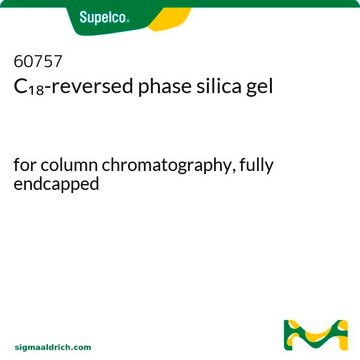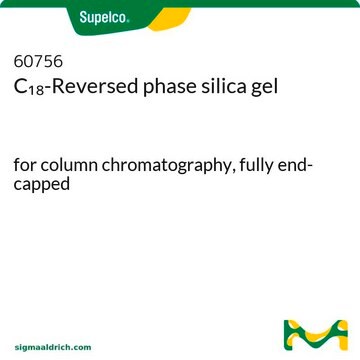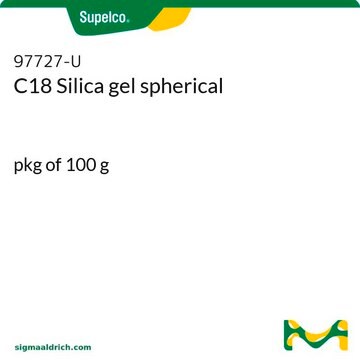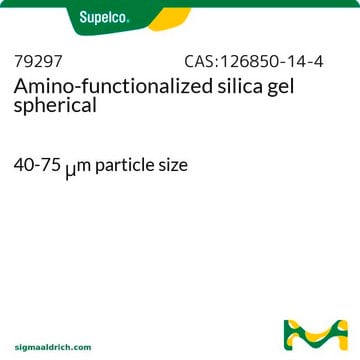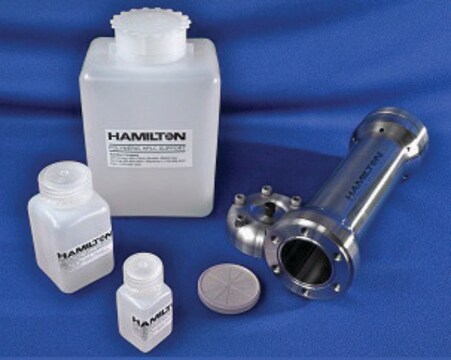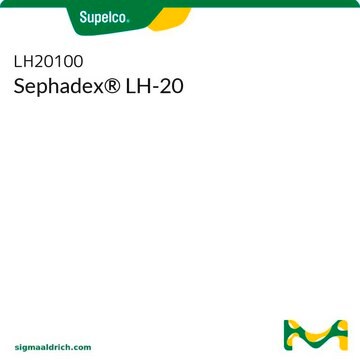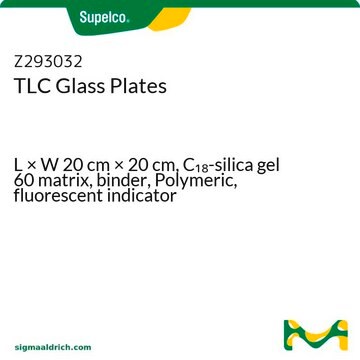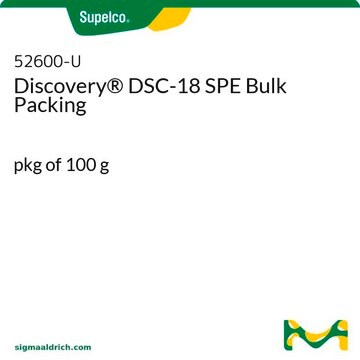60759
Silica gel C₈-Reversed phase Inorganic Sorbent
230-400 mesh, fully endcapped
Synonym(s):
Reversed phase silica gel C8
Sign Into View Organizational & Contract Pricing
All Photos(1)
About This Item
Recommended Products
product name
Silica gel C8-Reversed phase, for column chromatography, fully endcapped
grade
for column chromatography
Quality Level
form
powder
quality
fully endcapped
technique(s)
LPLC: suitable
matrix
Silica
matrix active group
C8
particle size
40-63 μm
pore size
90 Å pore size
separation technique
reversed phase
General description
Reversed-phase silica gels are generally suitable to retain catalysts by hydrophobic interactions.
Application
Silica gel C8-reversed phase was used in the purification of tertiary sulphonamide using FSPE. Pressure induced C8 reversed phase silica gel was synthesized through a sol-gel templating technique.
Storage Class Code
11 - Combustible Solids
WGK
nwg
Flash Point(F)
Not applicable
Flash Point(C)
Not applicable
Personal Protective Equipment
dust mask type N95 (US), Eyeshields, Gloves
Choose from one of the most recent versions:
Already Own This Product?
Find documentation for the products that you have recently purchased in the Document Library.
Effective viscosity of glycerin in a nanoporous silica gel.
Han, Aijie, et al.
Journal of Applied Physics, 104, 124904-124904 (2008)
Fluorous scavenger for parallel preparation of tertiary sulfonamides leading to secondary amines.
Basle, Emmanuel, et al.
Tetrahedron Letters, 48, 8138-8140 (2007)
J Horn et al.
Topics in current chemistry, 242, 43-75 (2004-01-01)
Catalysts immobilized on solid supports have become valuable tools for simplified product isolation and catalyst recycling. An alternative to covalent attachment to a solid support is to immobilize catalysts by non-covalent bonding through hydrogen bridges, or ionic, hydrophobic or fluorous
Our team of scientists has experience in all areas of research including Life Science, Material Science, Chemical Synthesis, Chromatography, Analytical and many others.
Contact Technical Service